It is unnerving to think that our homes could be hiding silent dangers, but everyday appliances can pose unexpected risks, putting your family’s safety at stake. Don’t leave it to chance, let’s look at 18 appliances you need to switch off regularly to protect your loved ones.
Toaster Ovens
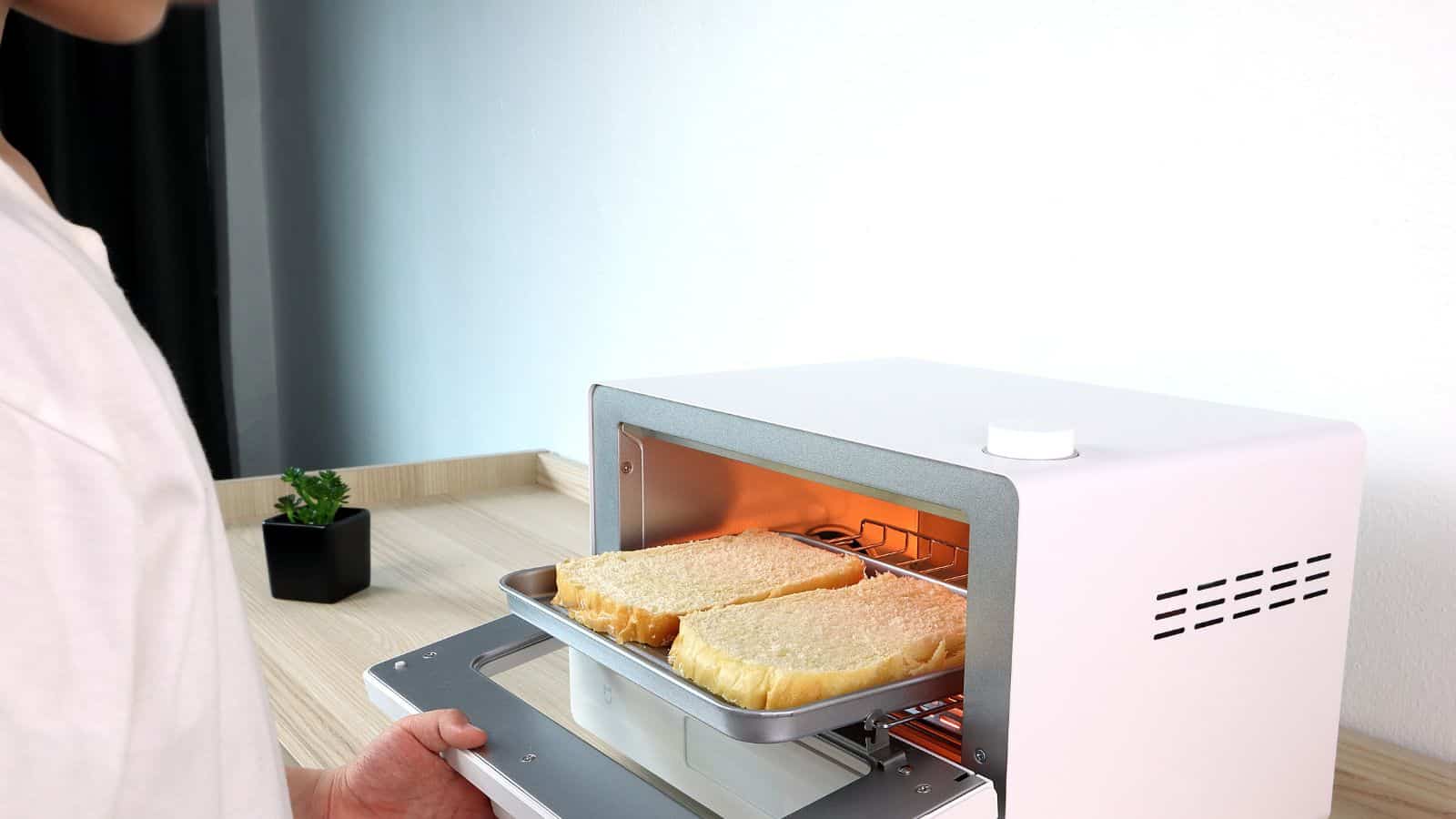
They are essential in any kitchen, but leaving them plugged in poses a fire risk. USA Today says “the heating element of a toaster heats up to more than 1000 degrees Fahrenheit.” Crumbs and food debris can ignite on the heating elements, especially if not cleaned regularly. Even when seemingly off, some models draw a small amount of power, potentially leading to overheating.
Coffee Makers

These little caffeine stations are notorious for starting fires, often due to electrical malfunctions or overheating. Leaving them plugged in after brewing increases the risk, as does neglecting regular cleaning. Mineral deposits from water can build up over time, hindering heat dissipation and leading to potential fires.
Electric Kettles

Electric kettles are a quick and convenient way to heat water, but they can be dangerous if left plugged in after use. Many models lack automatic shut-off features, and even those that do can malfunction. If left unattended, a kettle can boil dry, potentially overheating and damaging the heating element, which could lead to a fire.
Portable Heaters
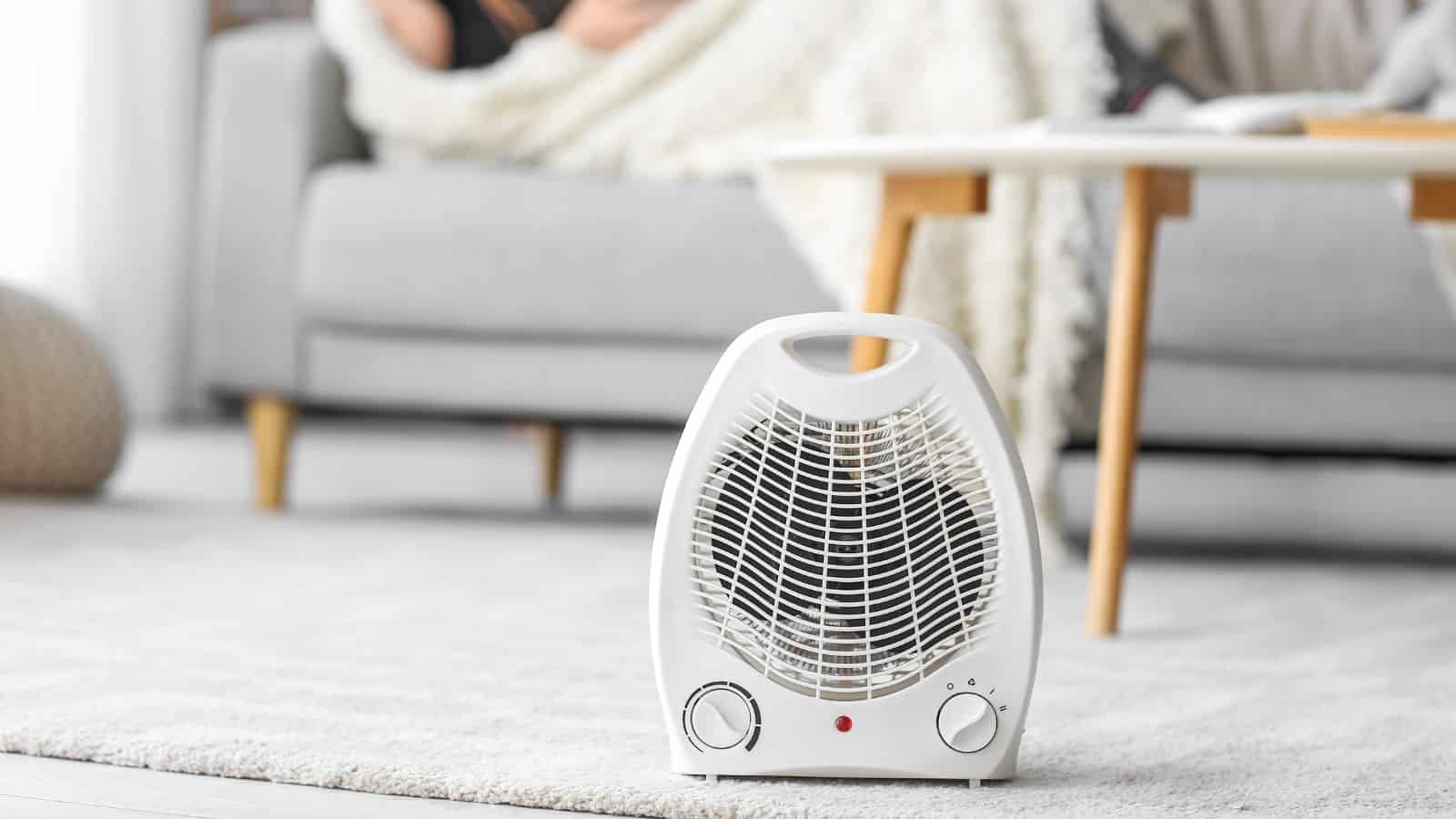
The Consumer Product Safety Commission warns that “portable electric heaters are high-wattage appliances that have the potential to ignite nearby combustible materials.” Always ensure your heater is placed on a stable, non-flammable surface, away from items like curtains or bedding, and never leave it running while sleeping or away from home.
Hair Dryers

An essential tool for styling your hair for a girls’ night out, but leaving them plugged in after use can be dangerous. The internal heating elements can remain hot even after the dryer is switched off, posing a fire risk if they come into contact with flammable materials like hair or lint. Additionally, electrical malfunctions can occur when the dryer is plugged in, potentially leading to sparks or overheating.
Phone Chargers
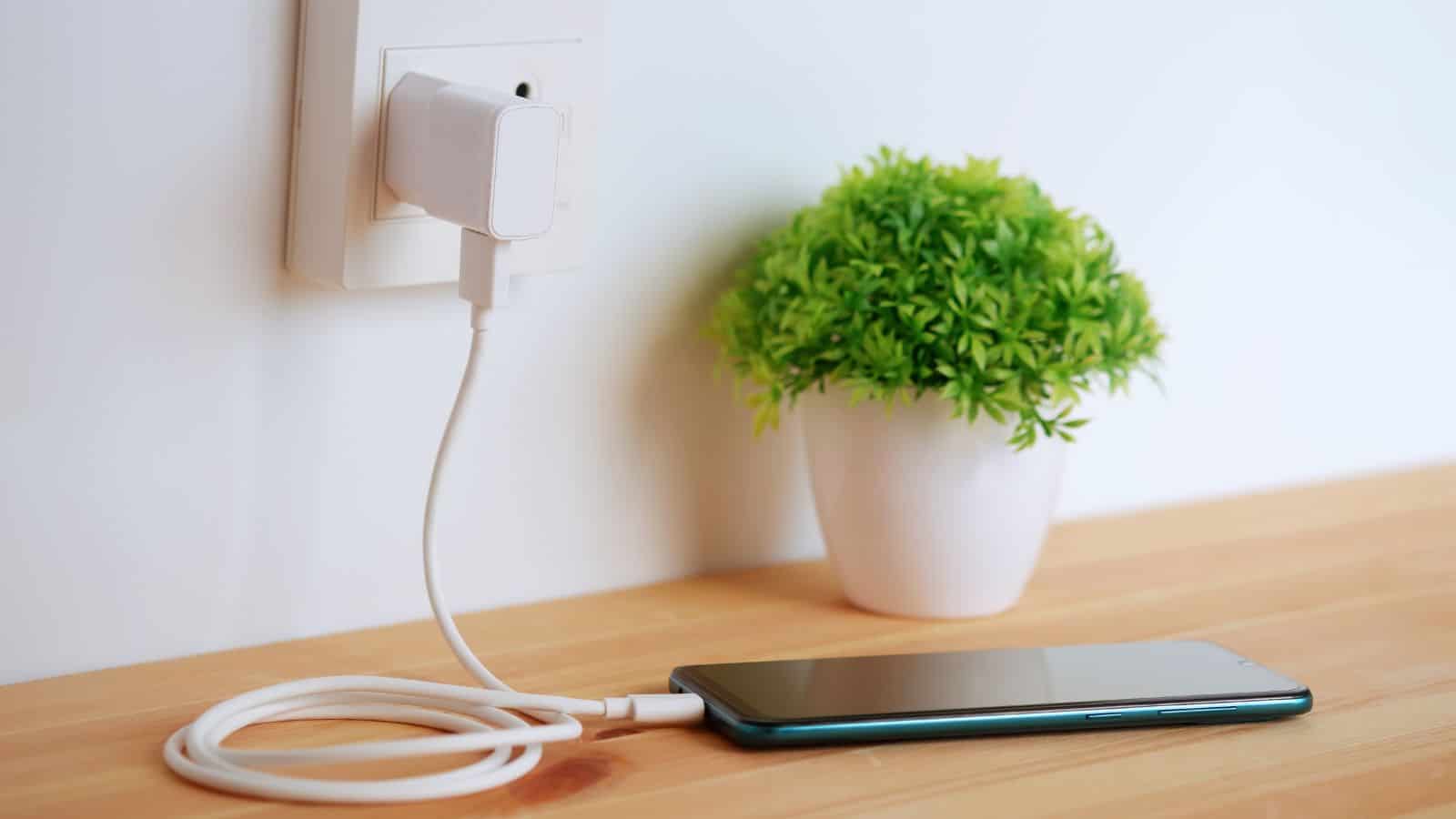
While essential for modern life, they pose a fire hazard if left plugged in, even when not connected to a phone. Chargers continue to draw a small amount of power, generating heat that can build up over time. The NY Post also reports how “smartphone batteries can explode for a plethora of reasons. Overheating, physical damage to the device, and degradation over time are all contributors to electronic fires.”
Clothes Dryer

Lint is a highly flammable byproduct of drying clothes. It can accumulate in the dryer’s lint trap, exhaust duct, and even around the heating element. This buildup restricts airflow, causing the dryer to overheat and potentially ignite the lint. To mitigate the risk, you should keep these areas clean and lint-free and unplug your dryer when not in use.
Ovens
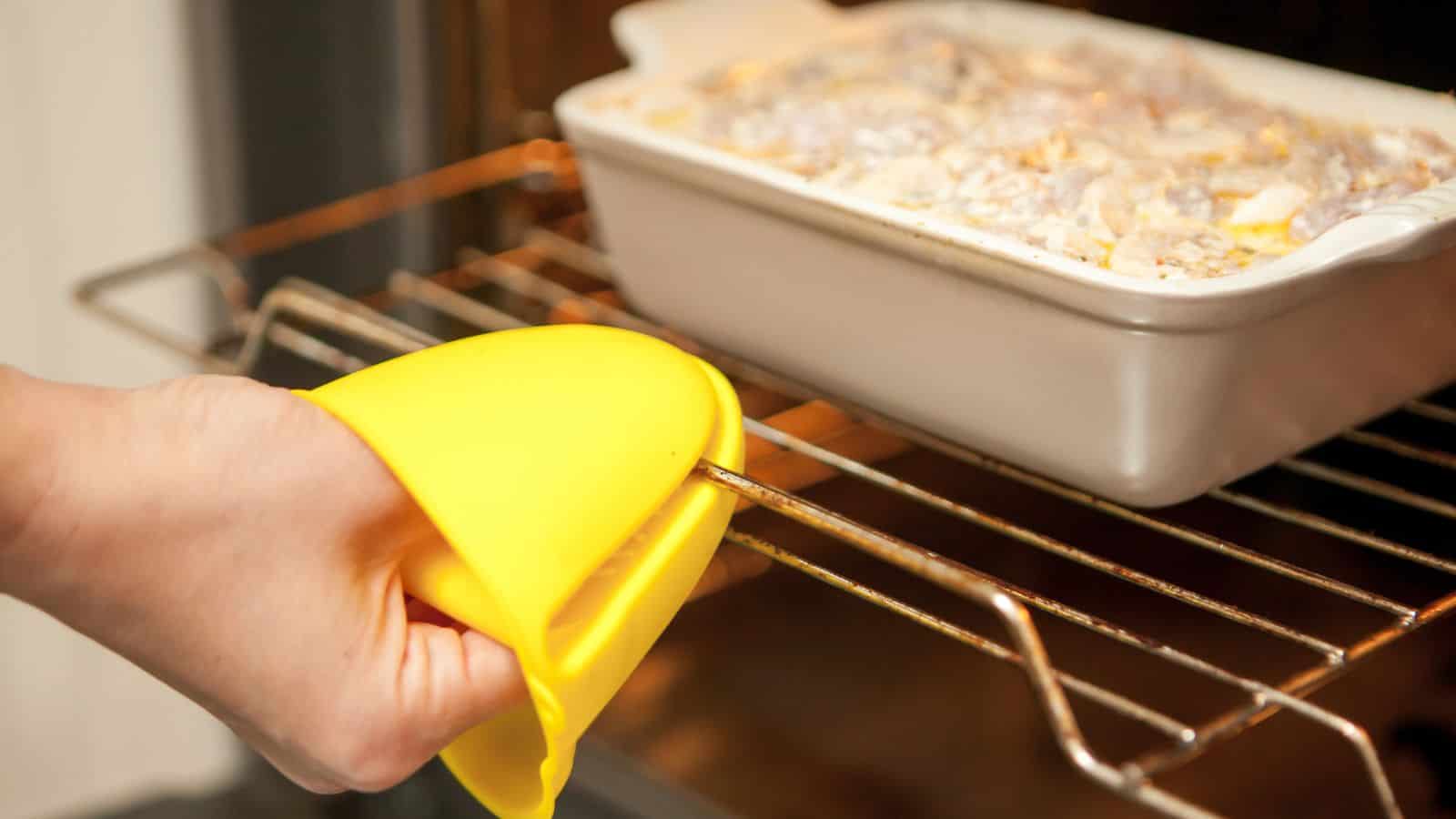
Even after being turned off, the internal temperature of an oven remains high for a considerable time, posing a risk of burns or igniting nearby flammable materials. So, it’s good practice not to cook just before bedtime. You should always unplug electric ovens when not in use, as this eliminates the risk of electrical malfunctions that could lead to a fire.
Television

Televisions, especially older models, can pose a fire hazard when left plugged in after use. Older televisions, particularly those with cathode ray tubes (CRTs), generate a significant amount of heat during operation. Even when turned off, these components may retain heat, which can build up over time and potentially ignite surrounding materials.
Extension Cords
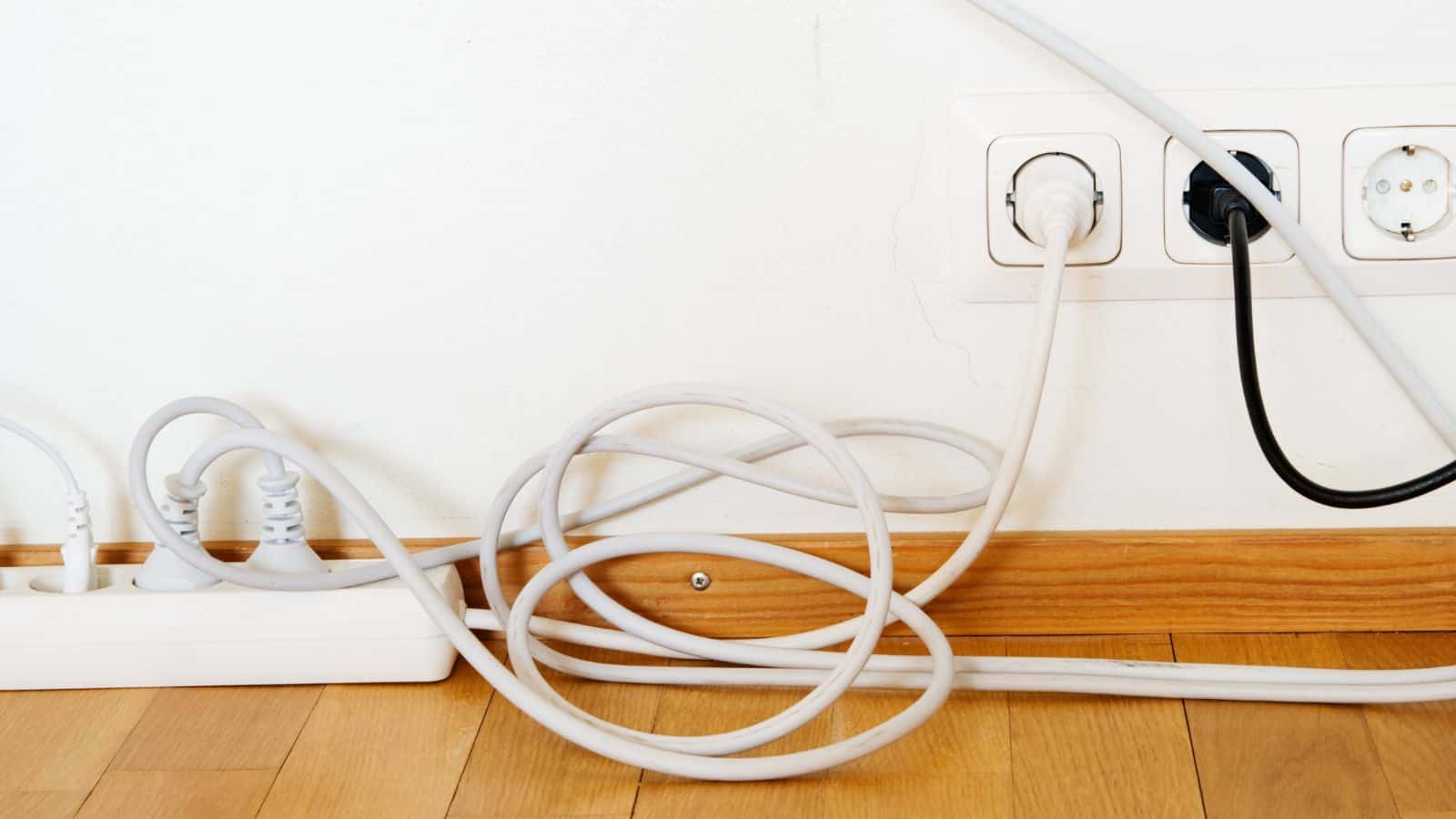
Overloading an extension cord by plugging in too many appliances or devices that draw excessive power can cause the cord to overheat. Additionally, frayed or damaged cords also present a risk, as exposed wires can spark and ignite surrounding materials. To minimize the risk, avoid running them under rugs or furniture, as this can trap heat and increase the risk of overheating.
Curling Irons

Curling irons reach extremely high temperatures; leaving a curling iron plugged in after use is a major fire hazard. Even when switched off, the barrel remains hot for a significant amount of time, capable of igniting flammable materials like hair, towels, or clothing. Always unplug your curling iron immediately after use, and don’t leave it unattended until it has cooled down properly.
Outdoor Lights

Older lights, especially those with incandescent bulbs, can generate significant heat, potentially igniting nearby dry leaves, debris, or other flammable materials. Electrical malfunctions or faulty wiring can also spark a fire, especially if the lights are exposed to the elements. Regularly inspect your outdoor lights for signs of damage or wear, and replace any cracked or broken bulbs.
Microwaves

These handy kitchen appliances can pose a fire risk if not used and maintained properly. The NY Times warns that “a power surge can trick the microwave into turning on, and it may run continuously until somebody notices and turns it off.” Always unplug your microwave when not in use, and clean it regularly to prevent grease and food buildup, which can also be flammable.
Wireless Router
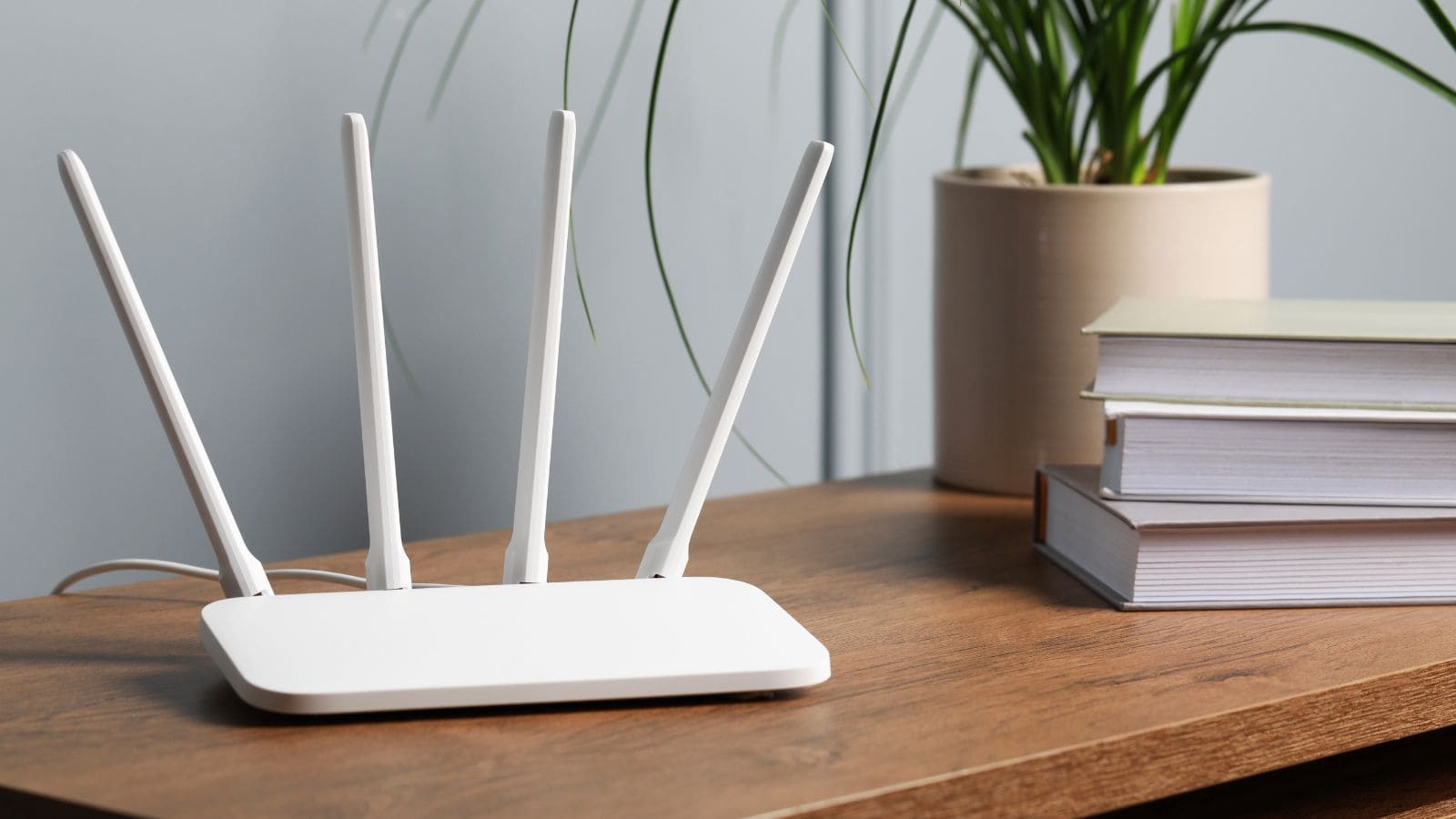
Switching off the router at night is a simple way of reducing the effect of our devices on ourselves and our families. The Environmental Health Trust says, “scientific evidence is substantial enough to conclude that radiofrequency radiation (including radiation from cell phones, Wi-Fi, and other wireless devices) is a human carcinogen.” It is even advisable not to sleep with your cell phone right next to your bed for the same reasons.
Computers

Certain components within computers generate significant heat while running, and even when in sleep mode, they continue to draw power and produce warmth. This heat, coupled with dust accumulation that can block ventilation, can lead to overheating and potential fires. While modern computers are generally deemed safer, it’s still advisable to shut down and unplug your computer overnight.
Lamps

A seemingly innocent lamp has the potential to cause serious damage. Particularly older lamps or even newer lamps with high-wattage bulbs. Lamps with light shades pose a particular danger if the lamp does overheat or generate a spark. To reduce the headache, always turn off lamps when going to bed and unplug them if you’ll be away for an extended period of time. You can also regularly inspect the cords and connections for signs of damage.
Electric Blankets

A cozy commodity during colder months, but leaving them plugged in when not in use could have the fire department paying you a visit. The internal wiring and heating elements can overheat, especially if the blanket is old, worn, or has damaged wiring. Even minor fraying or a loose connection can create a spark that ignites the fabric, leading to a fire.
Dishwasher

The combination of water, electricity, and heat creates a potential risk, especially if there are underlying issues with the appliance. Faulty wiring, worn-out heating elements, or a malfunctioning control panel can all lead to electrical shorts or overheating. While dishwasher fires are rarer, avoid running the dishwasher overnight or when leaving the house.
